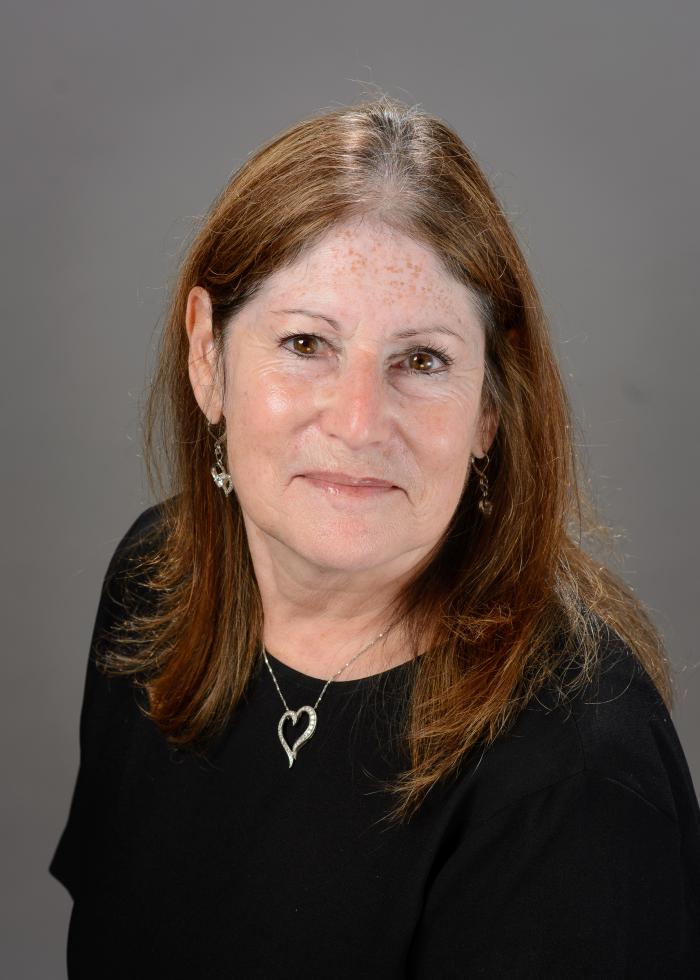Nan Bernstein Ratner Named Distinguished University Professor
Nan Bernstein Ratner, a professor in the Department of Hearing and Speech Sciences, has been named a Distinguished University Professor, the highest academic honor the University of Maryland confers upon its faculty.
“The entire BSOS community shares in celebrating Professor Ratner as a newly minted Distinguished University Professor,” said BSOS Dean Susan Rivera. “Having dedicated decades of her life to teaching, researching, and serving her department, Professor Ratner has undoubtedly shaped and strengthened the study of hearing and speech sciences on this campus, making her incredibly deserving of the 'Distinguished University Professor' distinction.”
Ratner has been a member of the University of Maryland faculty since 1983, at which time she joined the BSOS Department of Hearing and Speech Sciences (HESP) as an assistant professor. While continuing to climb the ranks as an educator, she also took on administrative roles in the department during her early years at Maryland, including serving as department chair from 1993 to 2014.
That was a pivotal time for the department, Ratner and colleagues recall.
“Massive deficits in the state budget led to intensive fiscal and institutional reorganization at the university during the early 1990s era … campus administration critically evaluated all academic units on campus in order to make significant cuts. As a relatively small department with a labor-intensive clinical education focus at the graduate level, HESP was quickly identified as a potential candidate for elimination as a cost-saving measure,” explained Colleen Worthington, HESP Clinical Professor Emerita.
Worthington said that Ratner did her part to save the department by helping it collect data in areas of importance to campus administration, leading HESP faculty through numerous meetings with UMD’s Academic Planning Advisory Committee, reaching out to alumni on local and national levels to weigh in on the quality of their education, soliciting letters from colleagues across the country regarding the quality of research generated by HESP, and garnering letters of support and in-person testimony from the Maryland State Department of Education regarding the critical need for HESP's alumni within public school systems across the state.
“Under Nan's administrative leadership, HESP survived, continued to thrive, and is currently a highly-productive member of BSOS with two graduate programs ranked in the top 10% nationwide within their disciplines,” Worthington continued.
Ratner has made a mark on scores of students over the years too, including multiple generations of families. Betty Bahadori, HESP B.A. '00, and her daughter, Susan Bahadori, HESP B.A. '07, M.A. '09 both had Ratner as a professor, as did Cheryl Wilkie, B.A. ’97, and her daughter Peyton, HESP B.A. ’24.
Paul Rao, HESP Ph.D. '85, and his daughter Angela “Angie” McLean, HESP B.A. '93, were also among those who were both professionally and personally impacted by Ratner.
“Dr. Nan Bernstein-Ratner lives on Mount Olympus; a giant in heart and mind,” said Rao in a 2023 interview about Ratner’s teaching impact. “Our son died in a motor vehicle accident on Dec. 7, 1990. Angie, our daughter, was a junior in HESP and was slammed by finals. Dr. Ratner took Angie off the grid and let her grieve, and personally arranged with each professor either a postponement of the exam or credit for the course and waiving the exam. At a time when the Rao family needed to grieve without distraction, Nan proved to be a savior.”
In recognition of her impact on students, BSOS has awarded Ratner—who is also the Director of Graduate Studies for the Program in Neuroscience and Cognitive Science—with its Excellence in Teaching Award. She has also received the BSOS Dean’s Medal, the highest honor the college bestows.
Ratner’s research has made an impact as well, especially on the hearing and speech sciences field.
“Nan was one of the first in the field to propose that childhood stuttering is not merely a speech motor disorder, but involves language encoding processes and circuits, and this approach has led to significant improvements in approaches to stuttering disorders. She is also among the first wave of child development researchers to put emphasis on the role of parents' speech to children in their language development,” said HESP Professor and Department Chair Samira Anderson. “In short, she is an outstanding scientist whose works in the fields of language development and fluency have been paradigm shifting.”
Ratner has received numerous awards for her research contributions, including the Fellowship in the American Association for the Advancement of Science, and Honors of the American Speech-Language and Hearing Association and Maryland Speech-Language Hearing Association. She also received the Distinguished Researcher Award from the International Fluency Association; the Miegunyah Distinguished Fellowship from the University of Melbourne; the Distinguished Alumna Award from Temple University; and the 2016 Professional of the Year award from the National Stuttering Association.
Currently, Ratner is leading two federally funded research studies; one examines possible predictors of recovery from stuttering in young children, conducted with Brian MacWhinney of Carnegie-Mellon University and Yvan Rose of Memorial University, Newfoundland. The other, recently awarded by the National Institute on Deafness and Other Communication Disorders, tracks the development of writing skills from grades 6-12 in a cohort of 25,000 students with and without a history of language delay, and with and without a history of bilingualism, across socioeconomic and racial groups.
Ratner has been a pioneer in the large-scale, computer-assisted analysis of speech and language data for both clinical and research purposes, and both projects make use of such large archival datasets.
“At UMD, I have been fortunate to conduct my work in communication development and disorders with amazing UMD colleagues, such as Rochelle Newman, and a truly outstanding group of undergraduates as well as graduate students,” said Ratner. “At my age, people constantly ask me when I plan to retire. But I have to be honest, I love the work I do, research and teaching alike. And I feel amazingly fortunate to have landed at UMD. It's been a great home.”
Published on Thu, Jul 24, 2025 - 12:46PM




